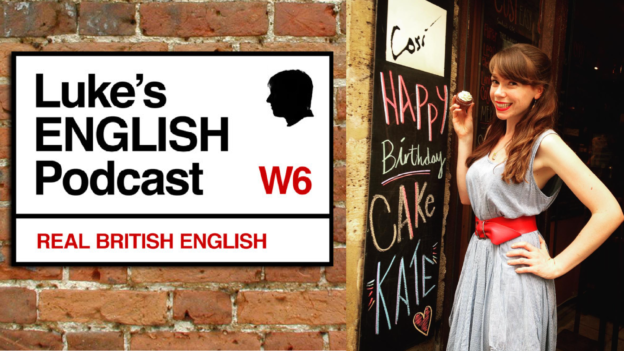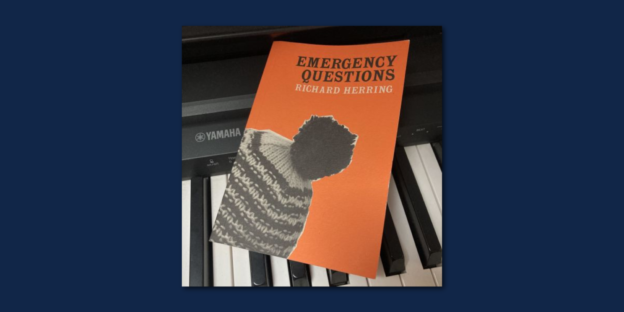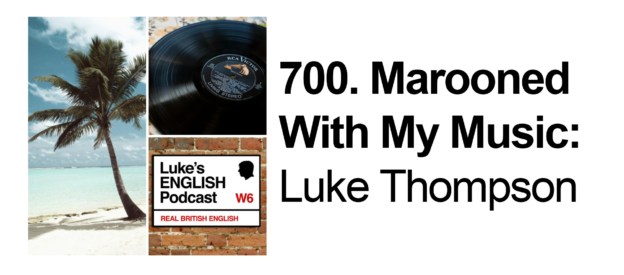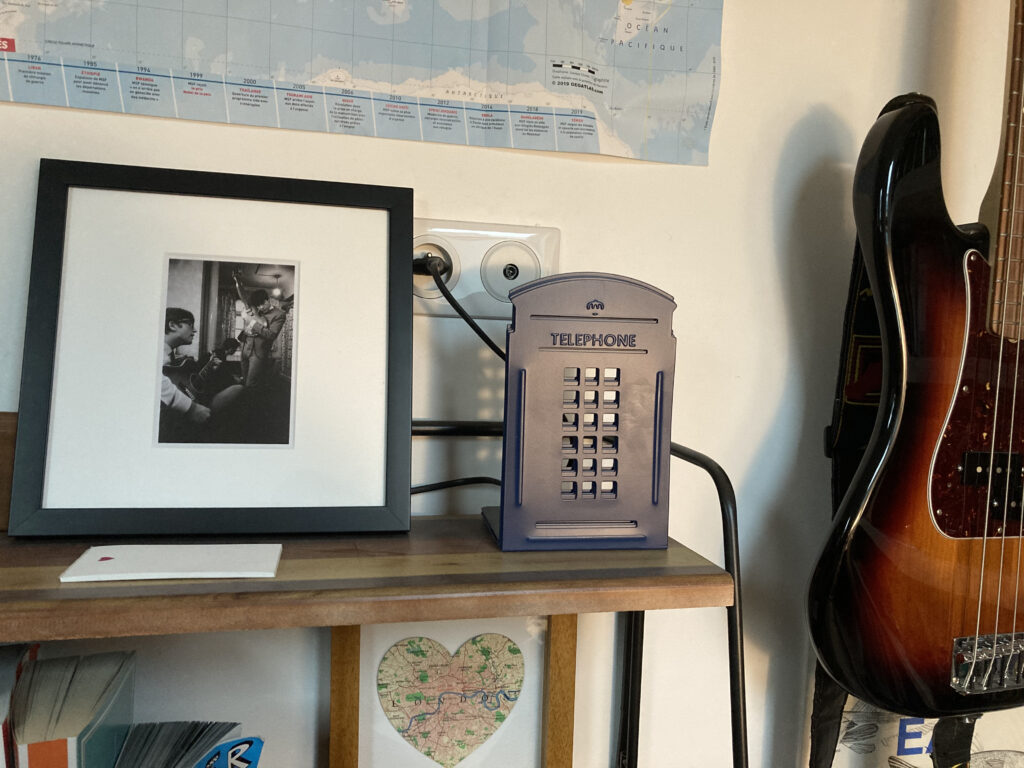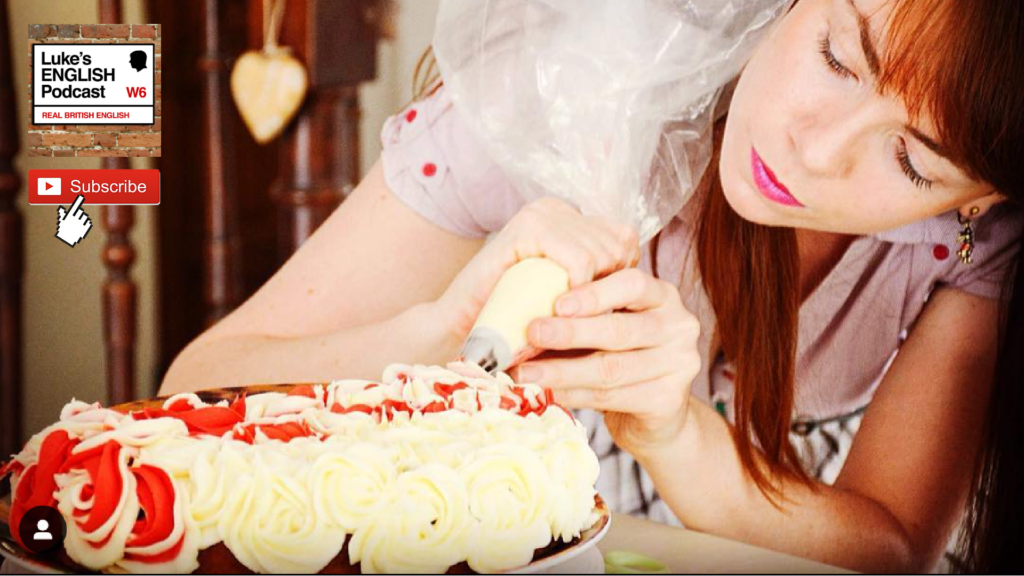Listen to another natural conversation with Kate Billington about some listener comments, Chinese New Year, English festivals & food in February, sports day traditions, more cake recipes, various bits of vocabulary and more.
[DOWNLOAD]
Introduction Transcript
Hello there, welcome back to my podcast for learners of English. I hope you’re doing well today.
You might have noticed that there’s been a bit of a delay since I published the last episode. It’s been about two weeks, although I have published a couple of premium episodes in that period. So the premium listeners have had something to listen to.
But there’s been a bit of a delay with the free episodes.
You might also notice that no transcript is available for this episode, including no text video on YouTube (although automatic subtitles might still be available).
The reason for this is that I’ve been working with some new software that allows me to edit both the audio and transcription at the same time, which is much more efficient than editing the audio first, then working on the transcript afterwards. This is the software that I’ve been using to make the recent text videos and transcripts.
In theory, this new software is brilliant and should revolutionise the way I work on my episodes – allowing me to produce the transcripts, text videos, and audio all at the same time. This is brilliant in theory, but in practice things are a bit different, and the reason why this episode has been delayed is because for two weeks the software has not been helping me. I won’t bore you with the technical details, but I will say that I’ve been pulling my hair out in frustration, banging my head on the table (sometimes literally) and generally raising a fist to the sky while attempting to persuade this software to do what it’s supposed to do.
Eventually, I just gave up on it, because it was taking far too long and it was stressing me out too much.
So – apologies for the lack of text video and transcript this time. I’ll try again with the next episode. I always want to provide you with full and accurate transcriptions – I think they’re a great addition to the podcast, but let’s just say that transcripts and text videos are a work in progress. They might not be available every time for every episode, but I am working on a cost-effective and time-efficient way to produce them for you. It’s a work in progress.
Again, if you’re watching on youTube, try turning on the automatic subtitles – they are usually quite accurate, although they struggle a bit when I’m with a guest, like I am in this episode.
Also, there are lots of vocabulary notes and also transcriptions for the intro and ending parts of this episode on my website, so have a look at that. Just check the archive for episode 705.
Alternatively, you can just forget about transcripts and reading and just focus on your listening skills. It’s a good idea to practise listening to the spoken word without relying on the written word too much, even when it’s a challenge.
OK? Alright.
So now that I’ve said that, let’s kick off this episode properly and here’s the jingle.
JINGLE
You’re listening to Luke’s English Podcast. For more information, visit teacherluke.co.uk
Hello listeners, how are you doing today? In this episode Kate Billington is back on the podcast. You might remember her from episode 689 which was called something like comedy, speaking Chinese and baking cakes, aka “The Icing on the Cake” with Kate Billington.
Just to give you a reminder: I know Kate because we work together, teaching English at the British Council. She is also a stand-up comedian like me. She’s from England. She is fluent in French and Chinese. She is a professionally-qualified baker, who loves making cakes and pastries, which is great for those of us who like eating cakes and pastries because she often brings some when she visits, and this time was no exception – she brought cake with her again, which was very generous. Thanks Kate for the cake.
There’s no specific topic for this episode. Instead, the plan was to just be natural and see where the conversation went, and it did go in various directions. Like last time, we spoke pretty quickly with little jokes and things, so please be ready for an advanced level episode today.
The first 15 minutes in particular might be a bit confusing as we move from topic to topic, but I will help you with that in a moment.
After the first 15 minutes we do settle down and focus on certain specific things, including some comments from listeners, some details about Chinese New Year – or Lunar New Year as it is also known, which leads us to talk about some English traditions, especially ones that happen around this time of year, and also some funny activities that you might see at a school sports day in England, and more quirky features of English life. There are also plenty of other bits and pieces as we move through the episode. I’ll let you discover it all as you listen.
Now, I really want to help you follow this conversation, especially the first 15 minutes, so here are some phrases you’ll hear and some questions to help you prepare yourself.
Think about these questions and phrases and then as you listen you can see how they relate to the things we say. This can make a big difference to your ability to pick up English from this conversation, so forgive me for not jumping straight into our chat right away. I’ll be as concise as possible so this will just take a couple of minutes.
Questions & Some Vocabulary for the first 15 minutes(ish) of this conversation
I will give full answers to these questions at the end of the conversation.
Tinnitus
- What is tinnitus?
- Why do I think I might have tinnitus?
- Sometimes I wonder if I have tinnitus and if it was making me shout while I was talking to Kate before we started recording, but do I have tinnitus, or was I shouting for another reason?
Maelstrom
- My brain feels a bit like a maelstrom sometimes.
- What is a maelstrom?
Violent
- We know the word violent, like a violent film or a violent attack but can the word “violent” refer to non-physical things in English, for example the way that you speak to someone?
- I tell a little anecdote about a student who I once encountered when I worked at university in Paris. What did the student want? What did I do? How did he use the word “violent”? (he was speaking French by the way)
Friendship and getting older (this all sounds so random, but these things are connected in the conversation)
- Think about making friends. Is it harder to make friends as you get older?
- Why would this be the case?
Cake & Eating Cake
- What kind of cake did Kate bring this time?
- What’s the recipe for that cake? The ingredients and the way to make it.
Grooming
- What are some of the different meanings of the word “grooming”?
- Why can the word “grooming” be a dodgy word?
- Why did I use it?
- Maybe Kate somehow implanted the word in my head, like the hypnotist Derren Brown.
Derren Brown (hypnotist)
How does Derren Brown implant words and images into people’s heads, as part of his magic shows?
That’s it for the questions.
As I said, I will clarify those things, and answer the questions at the other end of this conversation.
Right, so let’s now jump into this conversation with Kate Billington.
OK, here we go!
Links & Comments
Derren Brown (apparently) using subliminal suggestions in his TV show
Some Listener Comments from Episode 689
Tang Qiongyu
Kate’s Chinese is good enough for me to understand so I think she should believe in her competence for Chinese speaking.
However, there is a little mistake. 恭喜发财(gōng xǐ fā cái)means “may you be happy and prosperous” instead of “happy new year”. If Kate wants to say “Happy new year”, the right one is “新年快乐”(xīn nián kuài lè).
By the way, I am greedy for a jar of cookies when I listened this episode before bedtime hahaha. 😋😋😋
IcyFlame
Hi Luke and Kate, I think Kate’s Chinese is already good enough (I could completely understand. By the way, the translation of librarian in Chinese does make sense and we also say it that way (The library person : ) ). If you really want a more specific way to call them, I would prefer Tú Shū Guân Lî Yuán (Which is the Chinese Pinyin of 图书管理员, But the label on first “a” and “i” should be horizontally symmetric.
Anyway, it is a really interesting episode talking about cake and Kate’s experience. The joke is the icing on the cake!
Reda Zaouiri
If this episode was a cake, it would be a “Puncake” :)
There you go luke !
Ps : Thanks to both of you for the episode, kate was indeed a great guest, and for us listeners, we’ve been able to train our listening skills thanks to Kate’s super fast, natural speaking pace and posh-ish accent ;)
Also, thanks luke for reiterating at your own pace what kate said when you were talking about the first lines and what the senior manager had once said to her : “Oh yeah there’s lot of pregnant people here, if you don’t get pregnant in your first year, we send someone from customer services to do it.”
Ps 2 : Hooray for becoming a Chef !
All the best !
Alexandr Suvorov (Friend of the podcast)
Wow. What a brilliant guest, she’s so clever and fun and also genuinely friendly without it being insincere.
Kate, if you’re reading this, you’re very inspiring, thank you for being.
Ending
Thanks again to Kate for appearing in this episode. She is on Instagram – @cake_by_cake_paris And that’s where you can see lots of pictures of the cakes she has made, if you want to really savour them with your eyes at least.
Answer the questions from earlier (see notes in the intro) 👆👆
Some other vocabulary to clarify
To flatter someone / flattery
This is usually used in a negative way – as Kate said, saying nice things because you want something from someone.
“Oh Kate your cakes are so delicious and tasty. It would be wonderful if you could bring some more tomorrow” and Kate might say “Oh such flattery will get you nowhere” – meaning, your attempt to say such nice things will not persuade me to make more cake for you” (although knowing Kate, she would probably bring cake anyway”.
Or “Oh, you’re just trying to flatter me now.”)
But
Flattering (adjective) is a more positive word, which we use like this:
“Oh thank you. That’s very flattering.”
Or
“Those jeans are very flattering.” meaning – they give you a good figure.
Savour / savoury
To savour your food = to take time to really enjoy the flavour. I should have savoured the cake that Kate made for me.
Savoury food = food which is not sweet, like a savoury pancake (which could have cheese and ham on it) rather than a sweet pancake (which would have sugar, chocolate etc on it)
I think that will probably do for now!
LEP Premium – www.teacherluke.co.uk/premiuminfo
More episodes coming soon, including some conversations with WISBOLEP runners-up, and other things in the pipeline.
Thank you for listening!
